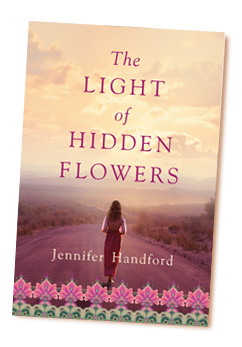The Writing Process
November 14, 2013, 1:26 am
Every book is different. Some authors, especially those who write for the mass-market, write in a very fast-paced, active voice. For example, Janet Evanovich, almost never uses backstory. In other words, her entire book is forward motion, driven by plot. Other authors employ quite a bit of backstory. An author like Anne Tyler could run a parallel story throughout her entire book just by using backstory. I tend to fall into this camp. I love using backstory to get at the motivation of my characters. In other words, why they are the way they are. What happened in their past that made them into the people they are today.
However, pacing is very important, and a writer needs to be careful with how much backstory he uses. The writer must always remember that it is the forward motion of the book that keeps the readers glued to the page. As a writer, I’m always learning. A few years ago, I was reading Anna Quindlen’s Every Last One. I was reading on my Kindle, so instead of page numbers, it showed percentages. In this story, a terrible tragedy occurs, and when it did, I looked down on my Kindle and saw that I was at exactly 50%. So in this case, the author decided to place her major climax smack in the middle of the book.
That doesn’t always work, for my book, Acts of Contrition, there is a major secret that is the premise of the book. At first I tried the Quindlen approach and placed the “grand reveal” at exactly halfway through the book. But as I begun to work with my editor, he pointed out that I was making the readers wait too long and in doing so I was, in a way, deceiving them by withholding the truth. I needed to maintain my authenticity as a storyteller and by keeping the secret for too long, I put that trust in jeopardy. Ultimately, I moved up the “grand reveal” to about a third of the way through the book and this worked better.
November 14, 2013, 1:03 am
WRITING IS RECURSIVE – Writing requires that we repeatedly apply function to our work. There’s no two ways about it. Writing is hard work. Seldom does it come out right on the first try, or even the second try, or even the third try. This point cannot be stressed enough: the quality of your writing is a direct reflection of the number of times you work on it. In other words, the more times you touch your work, the better it will be. I firmly believe this.
Other than a few outliers who would say differently, most professional writers will absolutely say that writing is rewriting. There are numerous books written on this topic alone. Anne Lamott in Bird by Bird discusses this in her chapter Sh*&% First Drafts. Here she says that it is a misconception that writers sit down and churn out beautiful prose. Every writer has the obligatory starting point of a terrible first draft. If you allow yourself to dismiss your perfectionism, and grant yourself permission to “go big” and perhaps even “go sloppy” in that first draft, your creative juices will flow and you’ll provide yourself with a grand starting point.
Perfectionism comes later. And that’s the essence of rewriting. And rewriting.
The thought that you must rework and rework your same piece of writing sounds like pure drudgery, but it isn’t. There is great satisfaction in each and every draft. I have a theory about the brain: it’s stingy in what it gives us and when. I don’t know why the brain doesn’t give us everything we want the first time we sit down, but it doesn’t. Each day it delivers a little more—a puzzle piece here, a puzzle piece there. Ultimately, after you’ve reworked a piece—whether it is an entire passage or just a sentence—it’s almost like magic. It’s better because of all your reworking, and there’s nothing more satisfying than reading your own work when it’s written well. So the work is required, but it’s satisfying work, akin to building something.
Rather than dreading another day of rewriting, open up to it and marvel in the new material that’s provided to you each and every day.
November 14, 2013, 12:29 am
“There’s nothing to writing. All you do is sit down at a typewriter and open a vein.” ― Red Smith
This quote (and variations of it) has been attributed to many authors (Red Smith, Mark Twain, Hemmingway). The point of it is to say that writing one’s truth is draining. I often wonder why it is so hard to make myself sit down and write. After all, it is the thing I claim to love. And here I’ll quote another famous quip attributed to various writers: “I don’t love to write; I love having written.” Again, this is because writing is hard. It requires us to be truthful and honest with ourselves. This is necessary, no matter what kind of writing you’re doing.
Some professionals will tell you to “write what you know,” and others will tell you, “write whatever you want.” Either way, with writing, you are inventing space, you’re transporting people, you are putting them under your spell. Whether you know your subject matter or not, I believe that you are always writing “what you know” because at the heart of every good story, are the motivations of the characters. Thus, we return to “one’s truth.” Writers are always going to refer to what they know, what they remember, based on experiences they’ve had. So whether you’re writing a literary novel or a fantasy fiction story, you will return to “what you know,” thus, your truth. For example, if your main character has done something wrong and therefore she is dealing with a boatload of guilt and shame, you’re going to dig from your own well of experience, what it feels like to be shameful. Whether your character takes on your exact feelings is up to you. What matters is the baseline which is drawn from your own experience.
Ultimately, if you’re writing for yourself, your truth will shine through, and thus attract readers. So go at it from that angle: write for yourself, rather than trying to pinpoint your audience and write for them. If you try to guess what’s in demand, what’s popular, you will lose your authenticity, and your writing will come across as false. Write for yourself and you’ll find your audience
November 1, 2013, 4:06 pm
Writing Tips
In my role as teacher, I have shared these tips with students:
WRITING IS EXERCISE FOR YOUR BRAIN. Some writers might be lucky enough to have ideas just pop into their heads. For me, I have to decide to write. This means, making the conscious effort to put my brain in a writing mode. For me, my brain is usually “idling,” like a car: it’s on but it’s not really moving. When I’m ready to write I have to tell my brain: think about this! When I do this: actually put my thinking cap on, I can feel my brain change; it goes to a deeper level. Almost always, I come away some nugget I can work with.
WRITE IN THE MOST BASIC TERMS. Do NOT take the time to come up with the perfect word or the perfect image. If you’re imagining an old gnarled tree swaying its bare limbs in the dark gray of a storm and at the moment all you could think to write is: It was dark and there was a scary big tree, then write that. You will have many opportunities to come back and work the magic of words and phrasing. What you don’t want is to lose the image you have in your mind. You want to be able to recall that dark afternoon with the tree.
WRITE BIG – Delete nothing at first. Save everything, you never know when you might need it. On your laptop, create a file that’s called: “extra” or “dump” or “deletions.” One day you might decide to cut an entire paragraph because you don’t think it’s serving your main theme and that’s great, you want to pare down your writing but you never know when you might need something you’ve deleted.
READ YOUR WORK THREE WAYS. Use your laptop to create, move your text around, even edit. It’s your main writing utensil. But every now and then, print your story on paper and read it. Your mind reads off of a computer much differently than it does off a piece of paper. I ALWAYS find more edits when I’m reading off of paper rather than my computer. THEN, and this is most important: read your story OUT LOUD. There is a definite rhythm and poetry to how your writing sounds out loud. On paper, you might not notice that two or three words together are fighting for the same sound. Reading aloud also alerts you to word repetition.
REWARD YOURSELF FOR GOOD WRITING. Each day when you pull up your work, before you dive into the parts that need work, reward yourself by reading a paragraph or sentence that you think came out really well. It will put your mind in the right spot, make you think: oh, yeah! I can do this. Let’s write more like this.
LET YOUR WRITING SIT. Whenever possible, let your writing sit. When you let it sit for a day or two and then come back to it, you see all sorts of things that you had missed previously, and new ideas flow forth.









